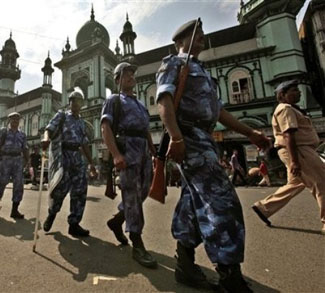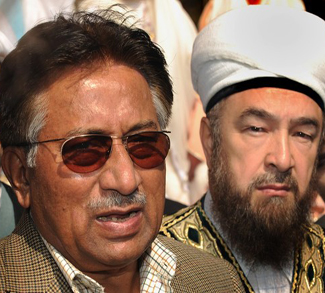A high court in India has ruled that the disputed holy site in Ayodhya should be shared between Hindus and Muslims. Is this the end of the conflict, or merely the beginning of a new phase?
In 1992, a mob of Hindus tore down the Babri Masjid in Ayodhya, claiming that it stood on the birthplace of their central deity, Ram. In the rioting and sectarian violence that ensued, over 2,000 people lost their lives. The question of what to do with the disputed patch of land has allowed sectarian tensions to remain on simmer all the way through to 2010.
Although both Hindu and Muslim groups claim that they will appeal the high court’s verdict, there is a distinct possibility that this legal decision could mark the beginning of the end of the Ayodhya issue. Hindus have been awarded the space most important to their cause; a patch thought to be the exact spot where Ram was born. Muslims on the other hand have received one third of the land in question, allowing for some face saving and the possibility of putting the divisive Ayodhya ordeal behind them.
It should be noted however that the original Ayodhya conflict in 1992 was very much the product of domestic political jockeying between the Bharatiya Janata and Congress Parties, so it wouldn’t be too far-fetched for the Ayodhya issue to once again become politically charged and take on a momentum unto its own.
The Hindu has published a long, detailed account of the site in question, as well as the legal battle that culminated in today’s decision.
According to the Pakistani newspaper Dawn, 200,000 police have fanned out across India in anticipation of communal violence following the announcement of the verdict.
Guardian UK writer Ramesh Rao draws parallels between the Ayodhya conflict and Indian democracy as a whole:
“The modern story of Ayodhya is emblematic of Indian democracy – which is messier than most other democracies – but India is a much more complex and larger country than most, struggling with contentious history, millennia old. Thus, it is commendable that on the day the high court gave its verdict, schools, offices and markets remained open in the state of Uttar Pradesh, home to the small town of Ayodhya. Alas, the saga may not end here, as the Muslim plaintiffs want to appeal to the Indian Supreme Court. We will have to wait and see.”




